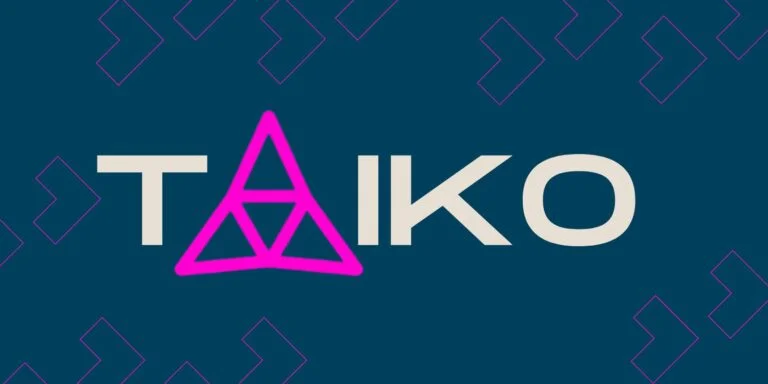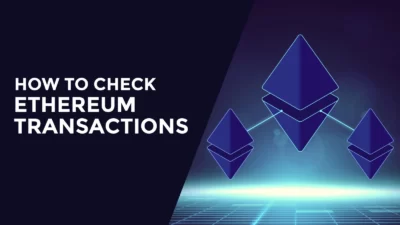Table of Contents
ToggleEverybody is talking about Ethereum scalability these days and for a good reason. But what if we told you there was an alternative that could help with Ethereum scalability? Introducing Taiko, the Ethereum-equivalent and decentralized ZK-EVM Layer-2 solution.
Taiko is a special type of blockchain technology designed to boost the scalability of public networks like Ethereum. It also provides improved privacy as well as increased speed when compared with traditional blockchains. In addition, Taiko realizes additional cost savings when used in certain applications.
What Is Taiko?
Taiko is an Ethereum-equivalent and decentralized layer-2 technology, based on Zero-Knowledge Execution Virtual Machines (ZKEVMs), that boosts Ethereum scalability. It allows for the execution of secure computations off-chain without the need for trusting a third party. So, it enables you to perform transactions faster and more securely than ever before.
This system is built on a unique structure that uses both a public ledger and private documents to ensure data privacy. This framework makes transactions secure while maintaining a high level of transparency. Through Taiko, users can securely store data without revealing underlying details such as identities, contracts, or input parameters.
The real value of Taiko lies in its scalability advantages when compared to existing Ethereum solutions; it offers superior throughput capacity and greatly reduces latency compared to on-chain execution, meaning it can process more transactions in less time. Additionally, its low overhead ensures low transaction fees when users buy cryptocurrency in Dubai or elsewhere or trade it while helping maintain chain integrity and robustness by limiting attack surfaces.
What are ZK rollups?
What is a ZK rollup? This is the key to understanding the technology behind Taiko and Ethereum scalability. A ZK rollup is a Layer 2 solution that allows multiple transactions to be batched up in a single transaction and settled on Ethereum. These transactions can remain completely anonymous when combined with zero-knowledge proof (ZKP) technology.
This means that an Ethereum user can send multiple transactions without sacrificing privacy or performance—in some cases increasing transaction throughput by up to 1000x compared to what’s possible with just Layer 1 scaling solutions. Some of the benefits of this include:
- Cost savings: ZK rollups help reduce gas costs, making it viable for smaller transactions that would not be profitable with Layer 1 options.
- Security: ZK rollups are secured by Ethereum’s existing infrastructure, so users can keep their funds safe without having to trust an intermediary or third-party custodian.
- Scalability: By batching multiple transactions into one, ZK rollups allow significantly more transactions to be completed each second than what’s possible on Layer 1 alone.
Taiko is one implementation of ZK rollups on Ethereum, and its privacy guarantees and scalability capabilities can help unlock new opportunities for both businesses and users alike—a powerful tool for anyone looking to supercharge their ETH experience!
What is Zero-Knowledge Proof?
Zero-knowledge proofs (ZKPs) are cryptographic protocols that allow one party (the prover) to prove to another party (the verifier) the knowledge of a certain statement or piece of information without revealing any additional information beyond the validity of the statement itself. In other words, a zero-knowledge proof enables the prover to demonstrate knowledge or possession of something without revealing what that something actually is.
The concept of zero-knowledge proofs was first introduced by Shafi Goldwasser, Silvio Micali, and Charles Rackoff in 1985. Zero-knowledge proofs have since become a fundamental tool in the field of cryptography, particularly in the area of privacy-preserving protocols.
Zero-knowledge proofs have several important properties:
- Completeness: If the statement is true, an honest prover can convince the verifier of its truth.
- Soundness: If the statement is false, no cheating prover can convince the verifier otherwise except with negligible probability.
- Zero-knowledge: The proof leaks no additional information about the statement beyond its validity. Even after interacting with the prover, the verifier gains no insight into the proof beyond the fact that it is valid.
How Taiko Uses Zero-Knowledge Proofs for Scalability
After answering the question of what is Taiko let’s take a look at how Taiko Uses Zero-Knowledge Proofs for Scalability. Taiko is an Ethereum-equivalent Layer 2 (L2) scaling solution that uses Decentralized Zero-Knowledge Proofs for scalability. It works by allowing users to move their transactions off-chain and settle them on the Ethereum mainnet.
Using Zero-Knowledge Proofs (ZKP), Taiko enables users to prove that a transaction occurred—without needing to reveal any of the details about it. This allows for faster, cheaper, and more private transactions when users buy and sell cryptocurrency or transfer it than those done via Ethereum’s mainnet. And unlike traditional L2 solutions, Taiko’s ZKP technology makes sure your data remains confidential and secure.
Plus, Taiko is also incredibly efficient when it comes to scalability. With its improved throughput capacity, Taiko can process several thousand transactions per second while keeping confirmation times low (which means faster transactions). And with its gas optimization feature, it consumes significantly less gas than a standard on-chain transaction would require.
So if you’re looking for a more efficient way to scale your operations on the Ethereum blockchain, Taiko emerges as a compelling contender. Leveraging Zero-Knowledge Proofs for scalability, Taiko embodies forward-thinking innovation, catering to the evolving needs of blockchain enthusiasts.
And if you’re looking to “Sell USDT in Dubai,” the city’s dynamic financial landscape could potentially provide opportunities to explore the world of cryptocurrency trading within this thriving global hub.
The Role of Validium in Taiko’s Decentralized Network
You may be wondering how blockchain technology like Ethereum can scale and remain decentralized. That’s where Validium comes in. Validium is a special form of decentralized consensus based on Zk-EVM, a technology developed by the Ethereum Foundation that uses zero-knowledge proofs to help scale the Ethereum network and improve privacy.
Validium, one of the main building blocks of Taiko, provides an efficient way to scale Ethereum without sacrificing decentralization. This is possible because it forces users to choose consensus models based on their specific requirements and objectives, rather than those of larger miners or more powerful stakeholders.
Moreover, through its unique consensus mechanism, Validium prevents the creation of forks (when two different versions of a blockchain exist) or censorship attacks (when someone gains control over some part of a blockchain). This ensures that transactions remain secure, even if other parts of the system are attacked or manipulated.
By utilizing the powerful combination of ZKEVM and Validium in its decentralized network, Taiko is able to provide improved scalability while maintaining security and decentralization at the same time.
Transaction Privacy and Anonymity With Taiko
Taiko has been designed to give users complete privacy and anonymity. The protocol uses zero-knowledge encryption, which ensures that not even the developers can see what goes on in a user’s transaction. This works by encrypting the transaction data and allowing it to be decrypted by only those who are authorized to view it.
In addition, Taiko also provides for the use of privacy coins like Monero for shielding users’ identities. This means that anyone conducting transactions through Taiko would have their details hidden from the public’s view, giving them greater control of their digital assets and Bitcoin-like assets on Ethereum.
Zero-Knowledge Encryption
The zero-knowledge encryption used in Taiko is a type of secure multiparty computation (MPC), which allows different parties to compute functions while preserving the data’s secrecy. It is a form of cryptography that allows for verification without revealing any other sensitive information about the data that is used for verification.
This layer of privacy and security ensures that users’ confidential financial records remain safe from hackers or any malicious actors who may try to gain access to them. And even if someone was able to gain access to a user’s transaction data, they wouldn’t be able to decipher what it meant or make sense of it due to its encryption.
Taiko provides users with an extra layer of protection while also ensuring scalability for Ethereum blocks, so users can feel confident when conducting transactions through this decentralized layer two protocol.
Taiko Tokenomics: The TKO Token and Staking
No blockchain is complete without its tokenomics — and Taiko is no exception. How does it work? Let us tell you.
The idea behind the staking mechanism is simple — when users stake TKO tokens to secure the network, they get rewards in return. As more people stake, liquidity increases, and more value flow into the network.
Staking Requirements
To start staking operations, users need to stake a minimum number of TKO tokens and also get their balance approved by validators — from there they can start getting rewards for their efforts. If at any time a user decides to quit staking, Taiko allows them to exit without any penalties or delays.
Rewards System
The rewards system on Taiko incentivizes proper behavior among users. As such, all validators can decide whether a transaction is accepted or not — those who obey the protocol are rewarded in ETH (Ethereum) and staked TKO tokens for doing their part in keeping the network safe and secure from malicious activities.
This set of rules helps ensure that Ethereum scalability remains strong while users enjoy faster transaction times at near-zero fees!
Conclusion
In short, Taiko is a block scaling solution that leverages the benefits of Ethereum’s underlying network and brings the scalability Ethereum desperately needs. It offers an opt-in approach to its users, and with its powerful layer two solution, provides an immediate and efficient way of scaling the Ethereum network. And its decentralized nature removes the need to trust a third party for the security of transactions.
Overall, Taiko appears to be a very promising scaling solution that can be used in a variety of applications. It is an important step forward in the development of Ethereum’s scalability, which will be key for its long-term success. It’s also a reminder of how far the Ethereum ecosystem has come in such a short period of time.








